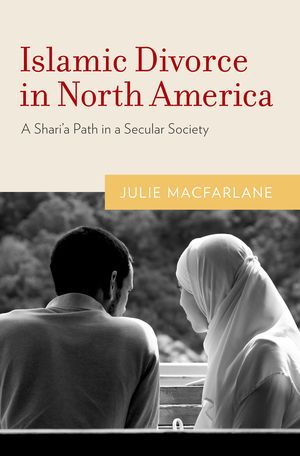
There is increasing attention among policy-makers and the public to the role of shari'a in the everyday lives of Western Muslims, raising negative associations and public fears among their American and Canadian neighbors. The most common way North American Muslims relate to shari'a is in their observance of Islamic marriage and divorce rituals; recourse to traditional Islamic marriage and, to a lesser extent, divorce is widespread.
In the course of her research, Julie Macfarlane conducted hundreds of interviews with Muslim couples, and her book describes how their Islamic marriage and divorce processes are used in North America, and what they mean to those who abide by them. The picture that emerges is of an idiosyncratic and frequently inconsistent private ordering system, dominated by imams and other community leaders, which reflects a wide range of attitudes towards contemporary family values and changes in gender roles. The emergence of a western shari'a challenges readers to consider how to find the right balance between state commitment to universal norms and formal equality, and the protection of religious freedom expressed in private religious and cultural practices.